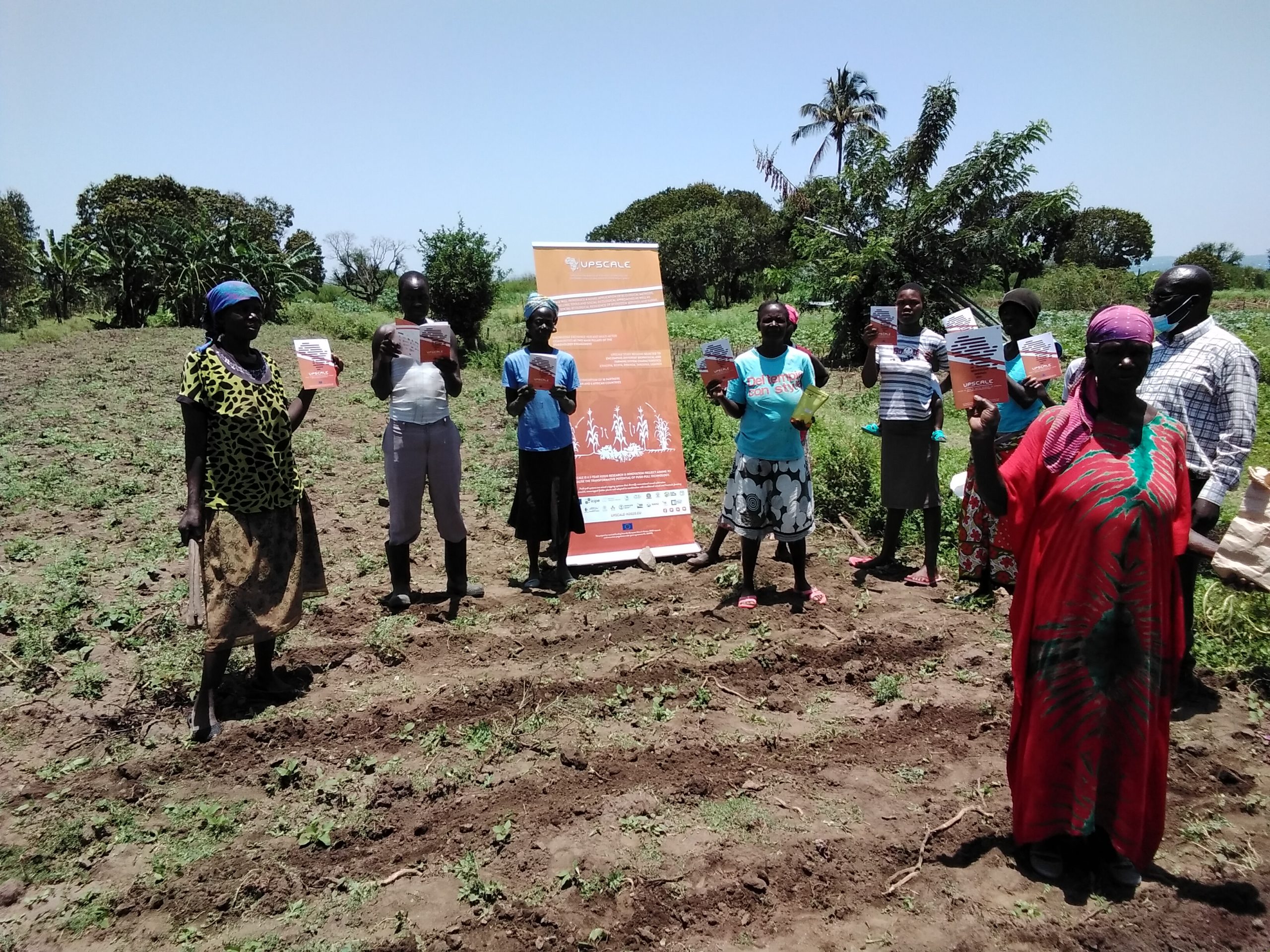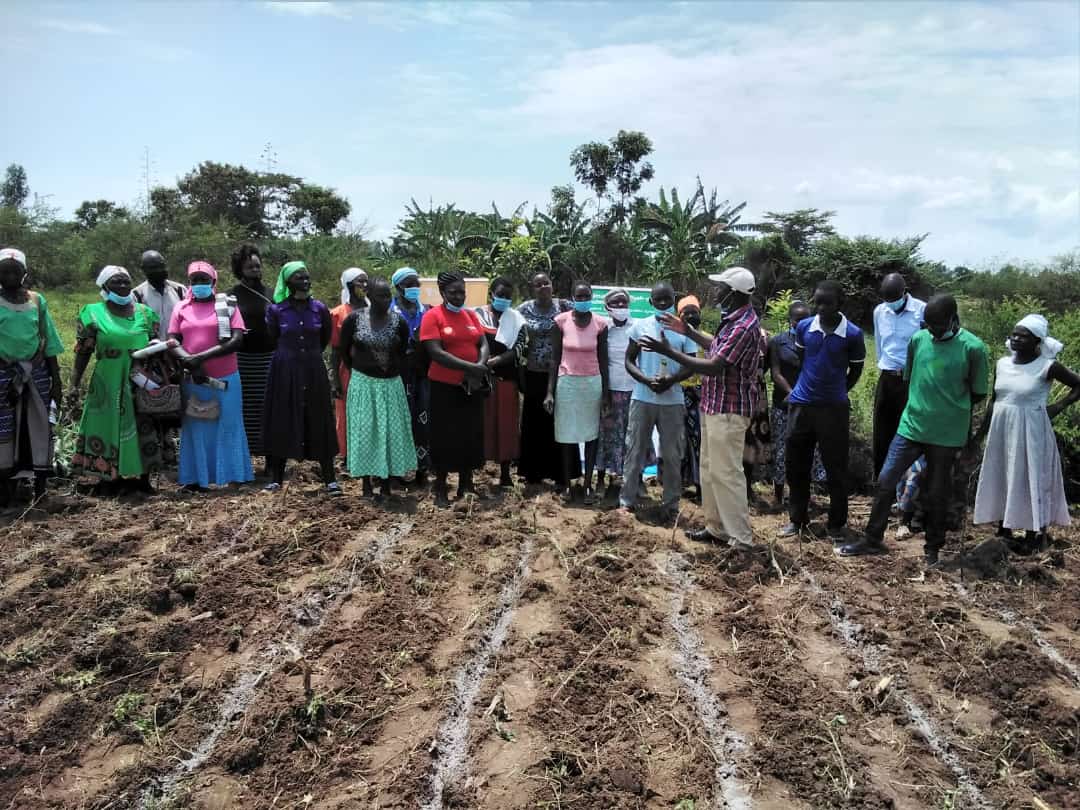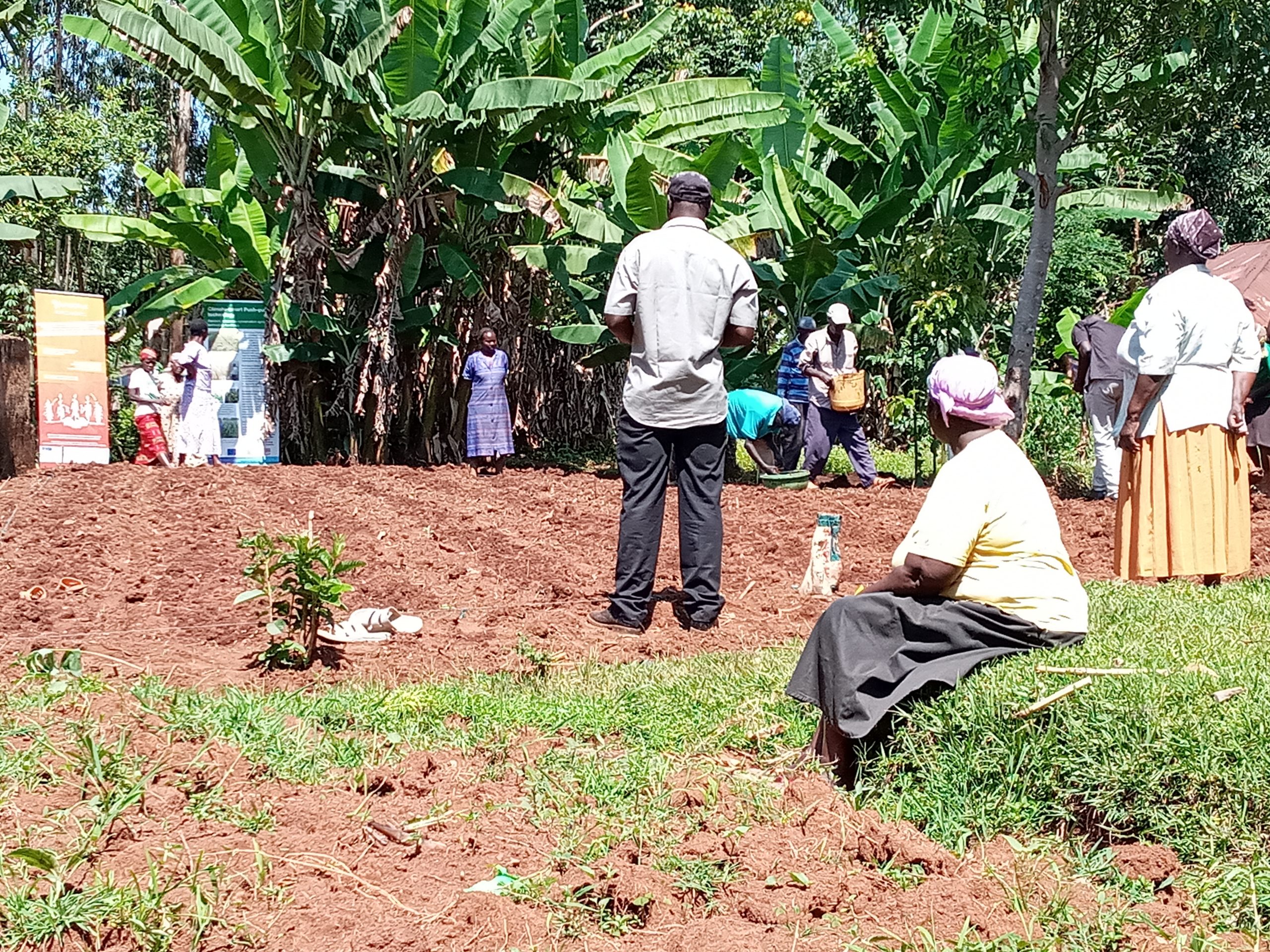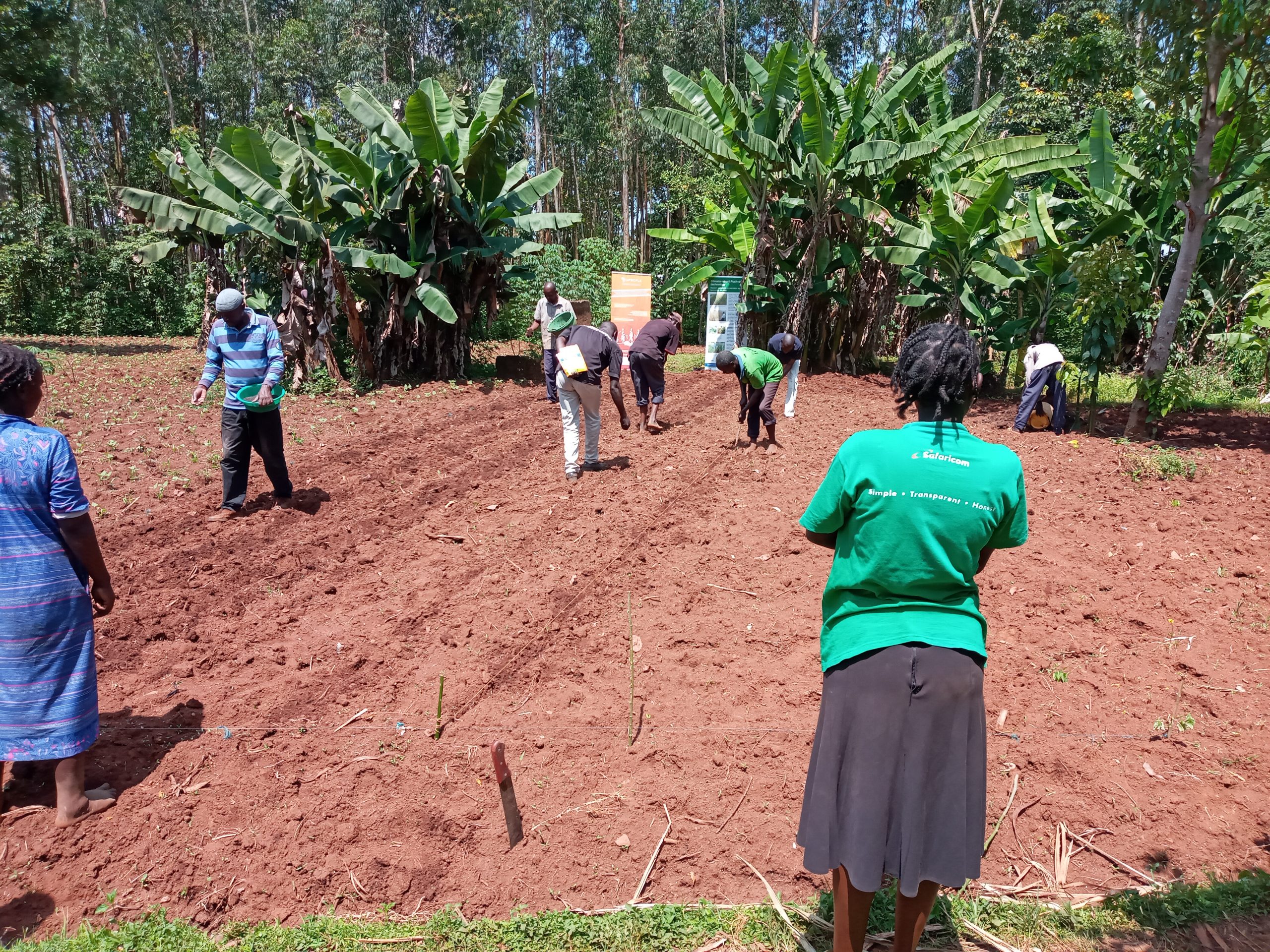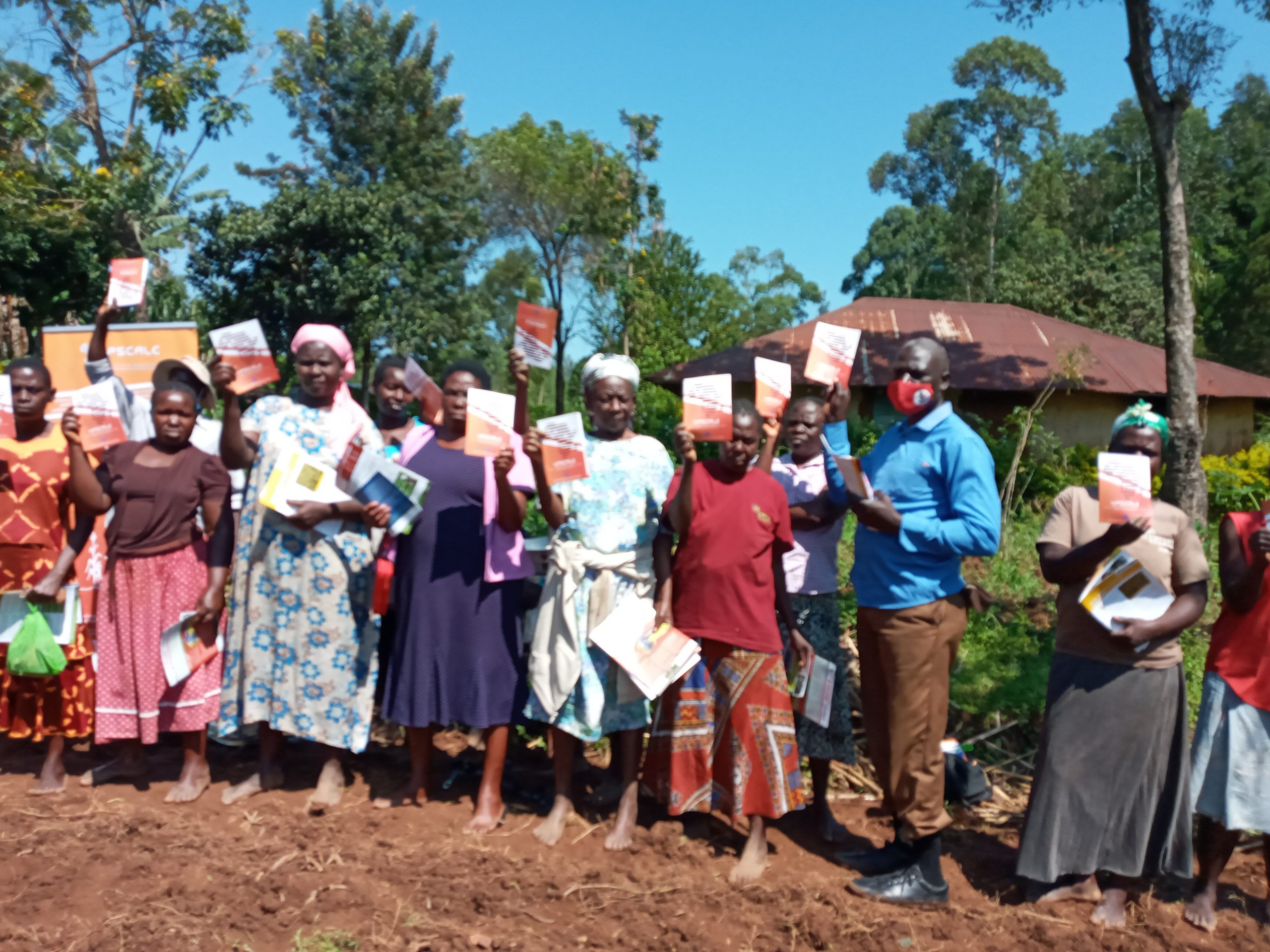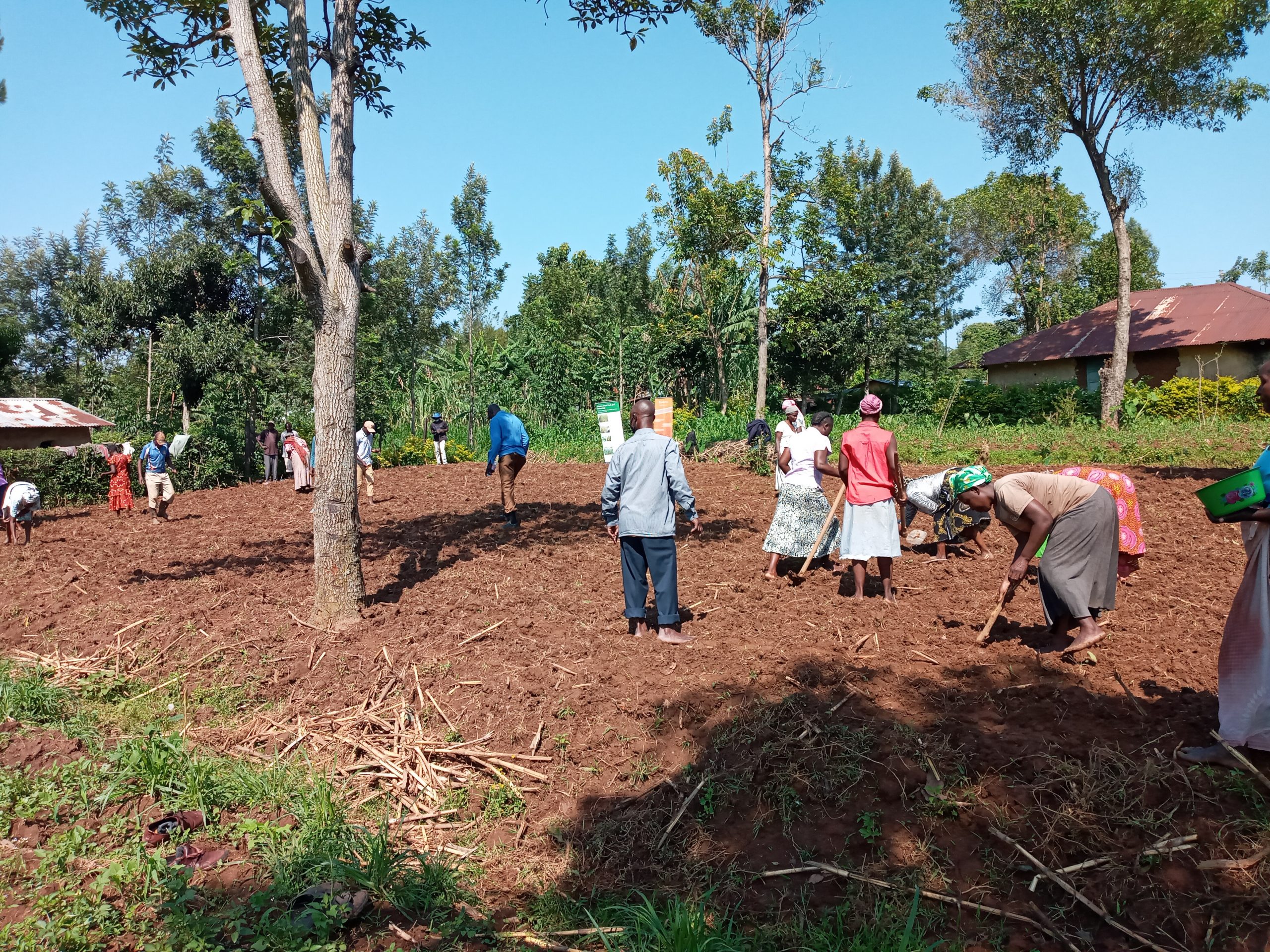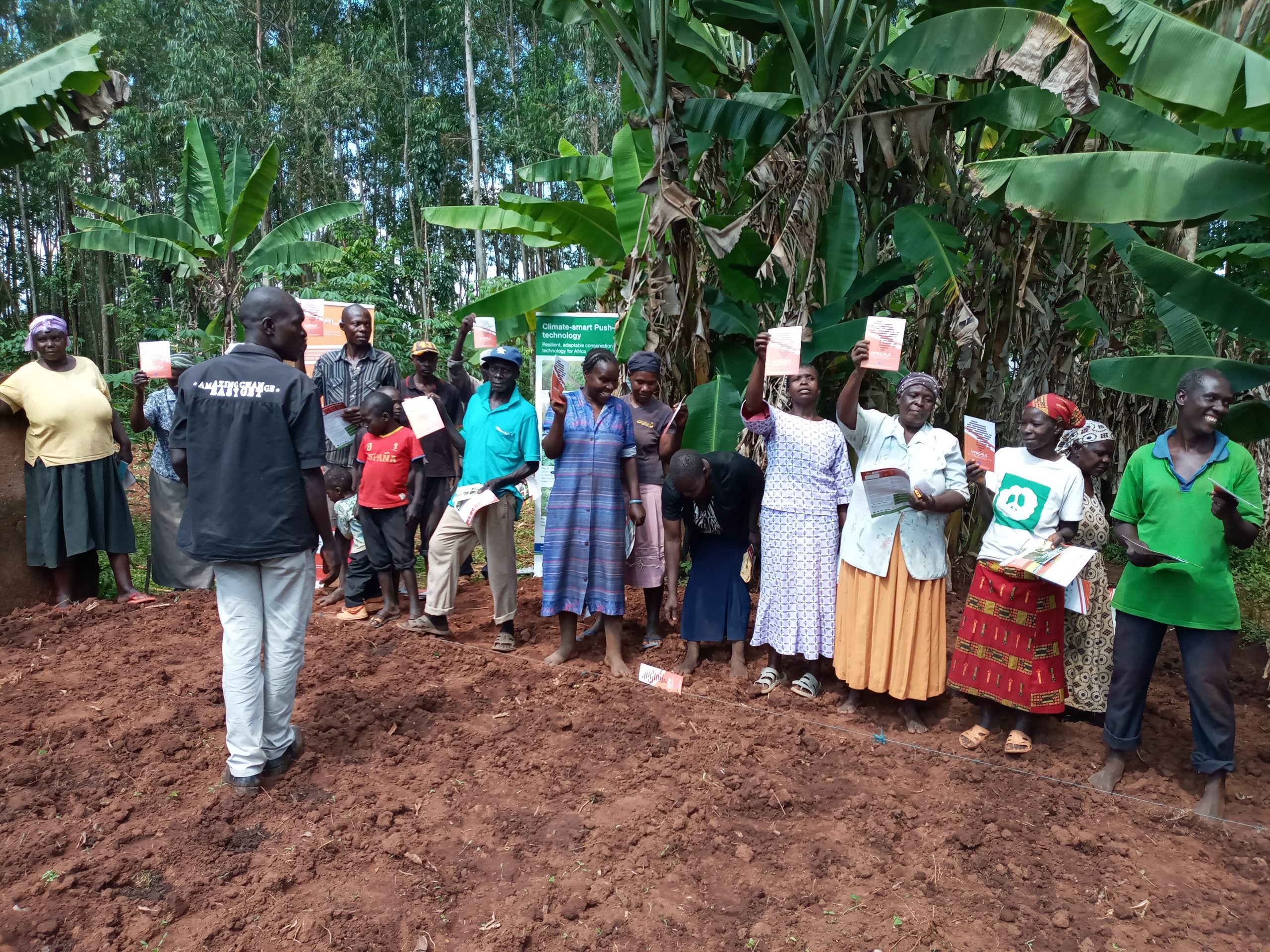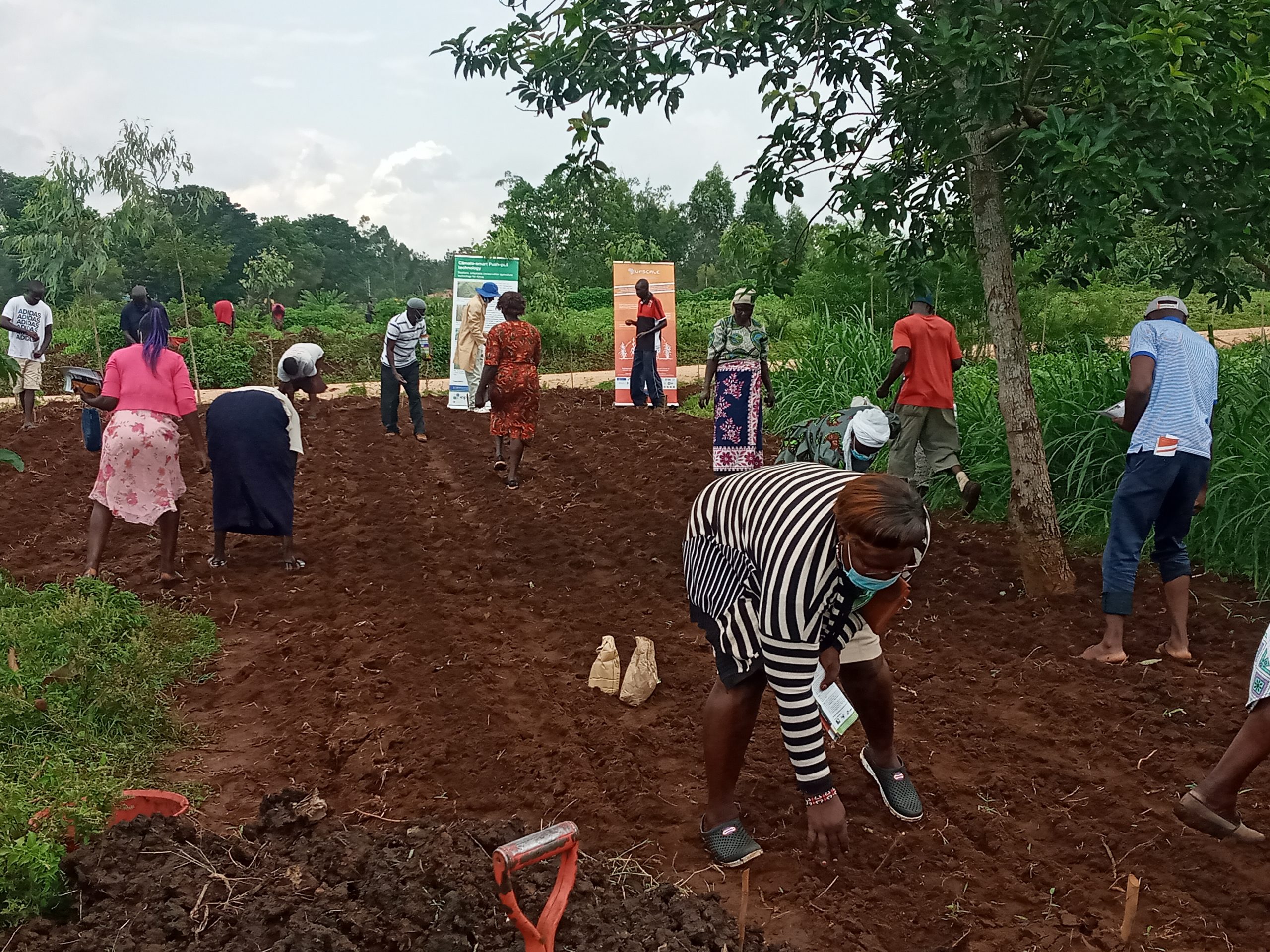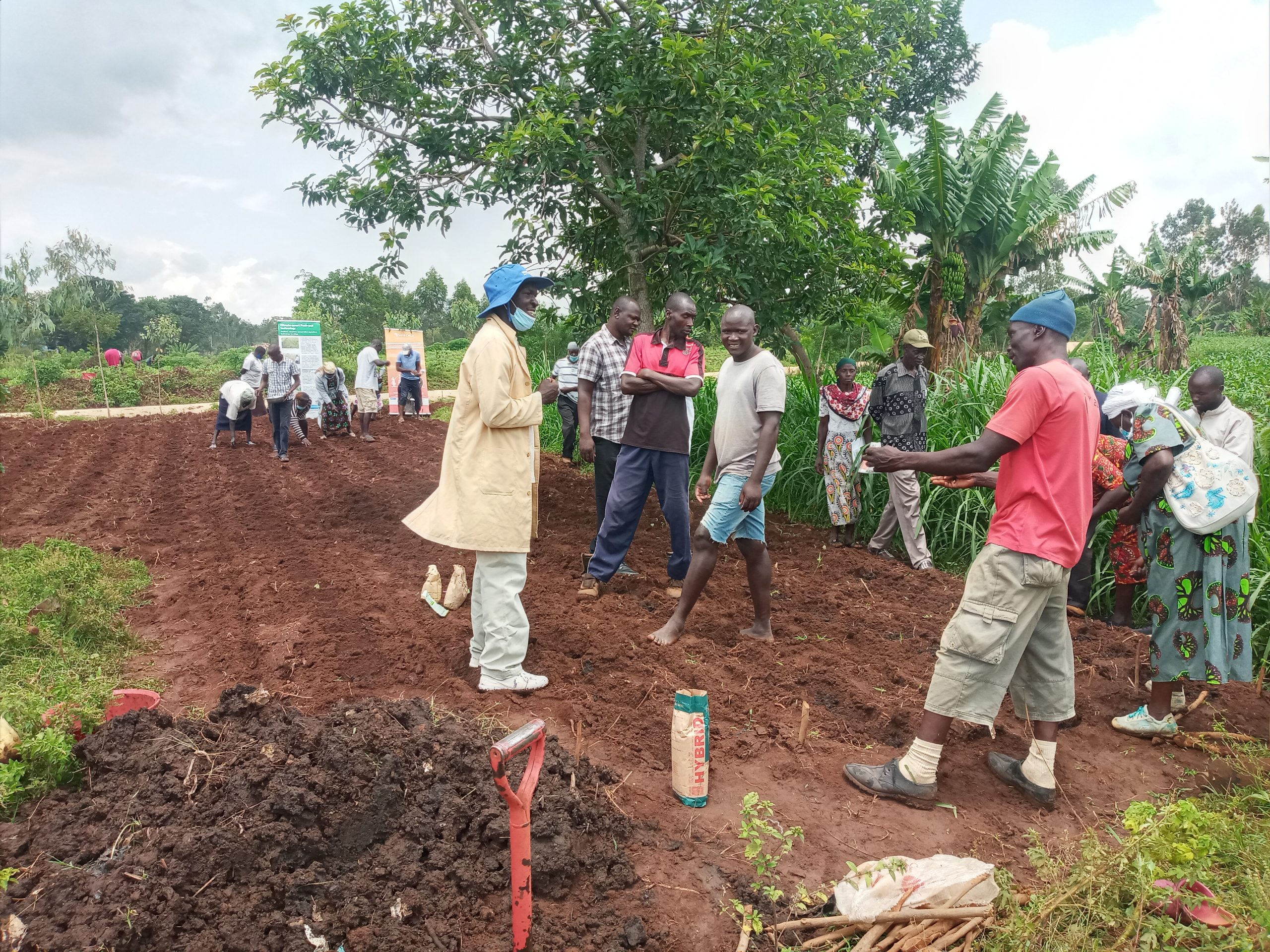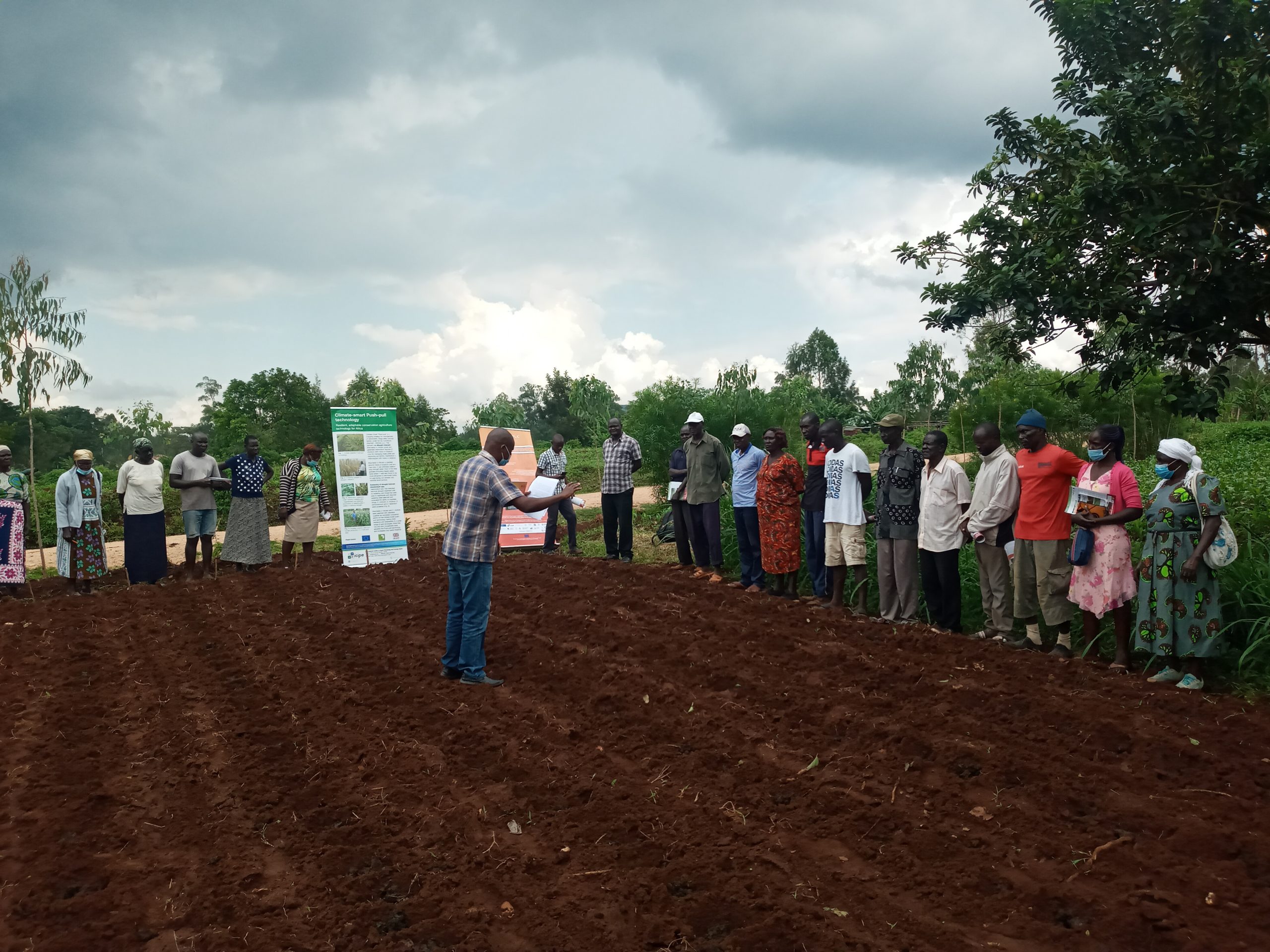Climate-Smart Push-Pull Technology (PPT) is relatively knowledge-intensive and therefore needs to be promoted in order to control Striga weeds, stemborers, and to improve soil fertility in cereal fields for increased production. International Centre of Insect Physiology and Ecology (ICIPE) have been using various dissemination pathways to reach farmers in Western Kenya on Push-Pull Technology adoption. Among the few are farmer teachers, field days, farmer field schools, field demonstrations (field demos), fellow farmers, public barazas, mass media, and at times a combination of two or more.
Field demos are always organized to provide farmers with the opportunity to practically learn how to establish a Push-Pull Technology plot and a platform for sharing experience with other stakeholders. On-farm field demonstration learning is not a single event but spreads across all stages of crop development from planting all the way to harvesting which is a continuous scheduled activity.
Field demo plot was owned by KOKA Self Help Group members. This activity marked the fourth stage of icipe staff engaging KOKA SHG members and it was meant for practical lessons of demonstrating to new farmers how to plant Desmodium and Bracharia in Climate-Smart Push-Pull Technology plot. icipe works closely with collaborators and it was through the Ministry of Agriculture Homabay office that KOKA SHG was identified. KOKA SHG has its officials which icipe field staff in the region communicates with in order to relay information to the rest of the group members. Planting materials were put in place and the Climate-Smart Push-Pull Technology demo plot was established using guidelines for the agronomic requirement including crop spacing and management.
Fieldwork training in Kenya
As the UPSCALE project strives to include more women farmers, the group of trainees consisted of 15 women and 10 men. As trainees, they did not have a Push-Pull Technology (PPT) established plot. Through the training, however, they got to meet other farmers who have introduced the PPT on their plots and learn first-hand about its benefits and long-term environmental and socio-economic impacts. During the exercise, icipe staff Mr. Romanus Odhiambo demonstrated on the planting of maize, Desmodium, and Brachiaria and also trained farmers on the following.
- How Climate-Smart Push-Pull Technology (PPT) controls Fall Army Worm
- How PPT controls Striga weed
- How PPT controls Stem borers
- How PPT improves soil fertility
- Why PPT offers quality fodder for livestock from Desmodium and Bracharia or Napier grass.
Objectives/aim of the field demonstration event was to provide the opportunity for farmers to learn about Climate-Smart Push-Pull Technology to improve their livelihood outcomes, to provide a platform for farmers to practically learn how to plant and maintain (weeding, trimming) Desmodium, Brachiaria, and maize in PPT plot as well as to foster participatory evaluation of Climate-Smart Push-Pull Technology for subsequent adaptation and application by farmers in their farming practices for positive livelihood changes
Activities
The facilitator trained farmers on the benefits of having a PPT plot. The main concerns of the present farmers were in regard to relation of PPT and concrete improvement in the soil fertility and its ability to retain water moisture. The answer is easy: Desmodium, being a legume, fixes nitrogen into the soil and provides cover to the soil so that direct heat from the sun does not reach the ground.
As UPSCALE covers several countries of Eastern Africa, it is important to find a proper way to reach the farmers from all use-case regions. For that purpose, participating farmers were given UPSCALE brochures translated to Dholuo which was their mother tongue step by step before setting to the field.
Future Steps
Several field days and PPT field demo plots are in the pipeline for different categories of farmers and farmer groups, both adopters and non-adopters. Stay tuned for more information on the upcoming events!
